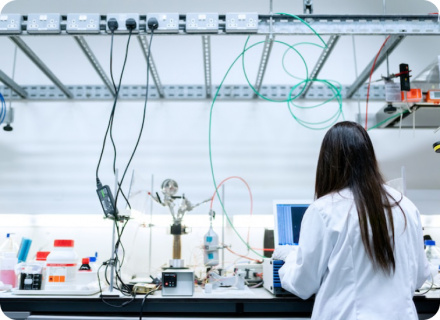Inquiries, information, and suggestions: info@worldhealthnetwork.global
WHN Science and Policy Group (WHN-SPG)
Chairs: WHN CAG Editorial Board
The WHN is forming a group of Scientists and Professionals who are or wish to be engaged in improving life conditions and health.
A GUIDE TO WRITING AND REVIEWING OF WHN DOCUMENTS
Note: the application of this guide cannot be generally done by a single individual due to the diversity of specialized knowledge that is required. Instead, it must arise out of the combined efforts of multiple individual writers and reviewers. This demands that the reviewing process be designed to include multiple individuals and to enable that emergent process through separate or shared evaluation of any document or statement.
Values
We are engaged in enhancing the value of life and health.
- We look for ways to affirm life and enable and affirm the ability of people to take actions to promote life and health.
- We consider all people’s life and health to be important and do not diminish the suffering of some due to prior conditions, race, religion or other group distinguishing features.
- We respect the unique value of individuals both as themselves and in relation to their families, friends and others with whom they interact.
- We are careful about the way people often embody values in words.
- “Natural” does not mean good or healthy.
- “Expected” does not mean it is not harmful or shouldn’t be responded to.
- When someone supports a position that costs in life and health we do not promote that position and we may choose to oppose it.
- “Infection based immunity” has a cost due to acute stage and long COVID.
See also our Statement of Values below
Positions
See Scientific Facts https://covidactiongroup.net/scientific-facts
See FAQ https://covidactiongroup.net/faq
Methods
- We focus on
- the most important information relevant to the challenge we are facing.
- information that is actionable to individuals, families, communities to empower them to take action.
- information that supports key understandings or actions that are being done (positive reinforcement).
- information that should significantly change existing understanding or actions that are being done.
- changes in policy that are happening, or should happen, that impact the public.
- lessons learned from other locations globally both about actions that have worked and actions that have not worked, with a focus on the former (examples to emulate).
2. We do not determine the truth, merit, or value of a statement, article or news piece on the basis of the author’s, institution or other source’s reputation, affiliation, or fame. The merit of a piece should be evaluated on the basis of its methodology, findings, relationship between assumptions and conclusions, analytical rigor, appropriate scope of conclusions.
3. We are careful to check whether assumptions used in a study have been validated and the way they affect the conclusions. We are careful not to promote conclusions of works where the conclusions are inherently linked to the assumptions that have not been validated.
4. We avoid and even critique speculative information (“if A is true then, X would happen, could happen, may lead to” statements) unless the logical inference is based upon validated assumptions. This includes opinion pieces about the scope and consequences of newly announced programs and policies, the putative impact of treatments, etc.
5. We are careful to use, or not use, value-laden words such as “small”, “rare”, “severe”, “mild”, and interpretations of future implications of current data, without careful justification in terms of both science and the implied values of life and health. We do not support statements about the implications of scientific and popular writings that are speculative in nature, claiming future or value driven relevance that are not well justified by both the data and the inference that allows such a connection.
6. We avoid reporting data that is unreliable to the point that essential conclusions drawn from them are undermined. Unreliable data include (not exhaustive list):
- Data about active cases without adequate testing, collection and reporting in a country/region (e.g. current conditions in US and some countries of Europe)
- Data derived via underpowered studies, incorrect statistical methods, faulty assumptions.
7. We avoid reporting scientific and technological innovations that will require an extended (over a year) period of development prior to relevance to current conditions. Describing treatments, new technologies, and other innovations that may achieve relevance in the future after undergoing implementation, trials and adoption should be avoided as they can easily cause confusion about their current relevance. (e.g. data about clinically relevant treatments in animal models). They can be reported once they are close to the early adoption stage.
8. We avoid resources with paywalls. Information should be accessible by a diverse audience. Exceptions can be made if the information that can be accessed provides the essential value (e.g. the title of a paper and abstract).
9. We avoid politically biased reporting. This includes media reporting based in countries who are not using an elimination strategy about countries who are using an elimination strategy, as this has become a political matter.
10. We avoid supporting and may oppose sources that systematically promote policies, interpretations, and recommendations that are non-scientific and opposed to WHN values.
- Focus on stopping infections instead of hospitalizations;
- Promote frequent testing and explore repeated mass testing as an alternative to lockdowns;
- Continue contact tracing and isolation/quarantines;
- Diligently wear high performing N95/KN95/FFP2 masks when indoors including all public transportation.
- Provide essential financial supports for those adversely affected by the pandemic & response
- Communicate effectively the opportunity for shared action to achieve elimination in a short period of time, and the true health (including long COVID), as well as social and economic costs, of not achieving it.
- Implement better ventilation and air purifiers for indoor public spaces;
Style
- We avoid overly technical, scientific, or medical language to communicate to the public. We use easily understood, non-scientific language to the extent that this is possible to disseminate information effectively.
- We strive for clarity of description and logic, connecting multiple pieces of information to show how they fit together, to enable easy understanding of the most important information and its implications.
Statement of Values
We envision a world in which we, the global community, together save lives, health, livelihoods and liberty.
The world has learned that while outbreaks are inevitable, pandemics are optional.
We know now that early prevention is better than delayed efforts at cure.
We experienced our global organizations and many nations’ leaders lack of preparedness for a predicted global pandemic and then, their inability to adapt to end it, as it progressed.
We can do better. We know how to do better. We will do better. Together. How?
- By connecting people in our interdependent world, to collaborate to end this pandemic effectively, and to ensure we are ready for the next.
- By creating a space where our individual aspirations to make the world a better place, are harnessed. Where our unique talents, abilities and knowledge are valued and connected to create a powerful tapestry of humanity.
- By building trust through telling the truth (authenticity), with logic (integrity) and empathy.
- By using care, compassion and success to motivate us, and allowing science to guide us. Science tells us the consequences of our decisions – our actions, policies and strategies.
- By knowing that pandemic response starts and ends with communities. That they are mostly sociological (rather than political) or biological.
The world is what we choose to make of it. We dismantle the specific wishful thinking that we can live with deadly viruses. We disagree that the deaths of our elders, our most physically, socially or geographically vulnerable, and our frontline workers are acceptable. We acknowledge those deaths are a result of our collective failure to act – as a lack of care. We show proof that the economy is the people and is not in competition with them.
We will work to reverse this diminishing of the value of life, the sacrifice of loved ones through lack of care, the exploitation of others or their injury, the promotion of misinformation, and distraction from what is important.


